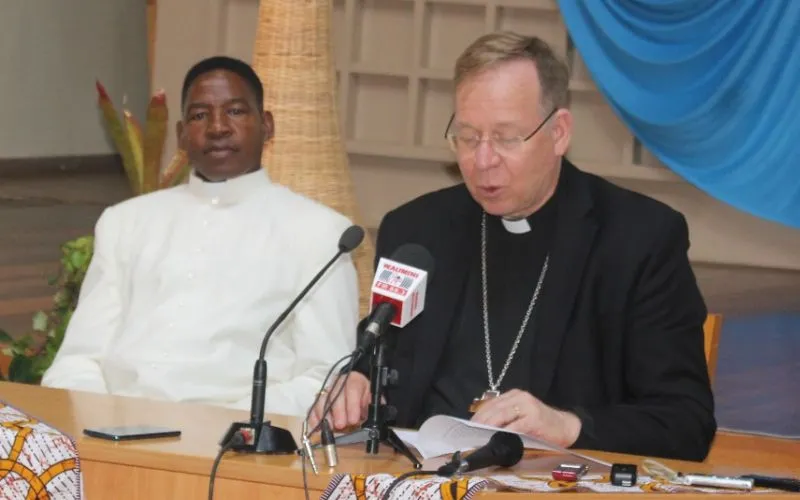Nairobi, 29 January, 2024 / 9:50 pm (ACI Africa).
The divided opinions among members of the Council of European Bishops' Conferences (CCEE) on the blessing of “same-sex couples” and couples in other “irregular situations”, which Fiducia Supplicans (FS) permitted impeded the issuing of a collective statement, the President of the Council has said.
Responding to questions at a press conference in Nairobi following the four-day joint seminar that brought together representatives from CCEE and the Symposium of Episcopal Conference of Africa and Madagascar (SECAM), Archbishop Gintaras Linas Grušas highlighted the different positions regarding the Declaration of the Dicastery for the Doctrine of Faith (DDF), which has elicited mixed reactions and deep division since its release on December 18.
“There was no joint statement issued from the Bishops of Europe for a very good reason; the Bishops of Europe in each Conference have responded to the documents in a very different respect,” Archbishop Grušas said on January 25, alluding to the five-page press release on January 4 in which DDF provided clarification on FS, calling upon each Local Ordinary to “make that discernment” on its implementation.
Unlike members of SECAM, who have been united in opposing the implementation of FS, the Archbishop of Vilnius in Lithuania said, “the conferences of Europe do not have a single voice or a single view of the matter.”
CCEE members, he went on to say, “are very much different in their approaches, some saying that they would not be blessing homosexual couples, others even saying they were disappointed that it (FS) didn't go far enough.”








